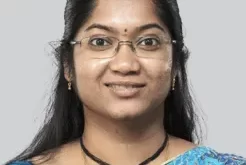ToPrevent from Human Papillomavirus (HPV)
If there is one cancer, all women should be on guard during their reproductive ages, and in their menopausal years, it is Cervical Cancer. One of the most common cancers with the highest mortality rate, Cervical cancer can happen at any age but is mainly diagnosed in women in their 40s.
Cervical cancer is a type of cancer that starts in the cells of the cervix, the end part of the uterus that connects to the vagina. One of the chief causes of cervical cancer is the Human Papillomavirus (HPV), a sexually transmitted strain of the virus. The human body’s natural immunity prevents HPV from showing any impact; however, the strain may remain latent and survive for many years, triggering the growth of cancer cells in the cervix.
One of the effective ways to prevent cervical cancer is getting vaccinated against HPV. This article will explain why every woman should take this vaccine and safeguard themselves from cervical cancer.
What Is HPV Vaccine and Its Role?
Multiple strains of HPV spread through sexual contact – oral, vaginal, and anal. The vaccine that is part of this comprehensive immunization is Gardasil 9, which has been approved worldwide by oncologists and plays a significant role in preventing cervical cancer, besides vaginal and vulvar cancer. This vaccine also effectively prevents warts on the genitals and anal cancer. In addition, oncologists widely recommend the HPV vaccine for men as it curtails the sexual transmission rate, thus shielding women from cervical cancer. Recently, an Indian vaccine for cervical cancer has been launched by the Serum Institute of India (SII).
What Is The Right Age To Take an HPV Vaccine?
Doctors recommend this lifesaving vaccine for girls and boys between 11 and 26 years. However, women above 26 and 45 can also get inoculated after discussing it with their doctor. This is because if someone has already been infected with HPV, the vaccine might not be practical, and various studies prove that the vaccine’s efficacy is better at a younger age than it is at older years.
In India, the vaccine is administered in two doses in a gap of 6 months.
Who Should Not Take HPV Vaccine?
HPV vaccine should not be administered to pregnant women or those with moderate to severe health conditions. If you are allergic to specific compounds in medications, remember to inform your doctor. Likewise, alert your doctor if you have had a severe allergic reaction to any other vaccines earlier.
Can People Who Are Sexually Active Take HPV?
Sexually active individuals can get the HPV vaccine, as it still shields your body from multiple strains of the virus. However, if you already have an HPV infection, the vaccine will not cure it.
Should Women Continue Getting Pap Smear Test Even After Getting Vaccinated?
Yes. Pap smears should be part of regular cervical cancer screening even after vaccination.
How Can One Protect Themselves From HPV?
Human Papillomavirus spreads through sexual contact. Therefore, always practice safe sex, and use a condom.
Practice healthy lifestyle and eating habits
If you are a smoker, quit now!
Keep up with annual Pap smears and other diagnostic tests to detect the presence of cancer cells, if any.
If you notice severe abdominal pain, sudden vaginal bleeding after intercourse and after menopause, or unexplained pelvic pain with clear vaginal discharge emitting a foul smell, see your doctor immediately.
Authored by Dr. Pinaki Mahato Medical Oncologist, HCG Cancer Centre – Vadodara
 Newspatrolling.com News cum Content Syndication Portal Online
Newspatrolling.com News cum Content Syndication Portal Online






